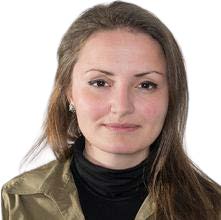Urban Transformations & Regional Resilience | Virtual Lecture Series
Urban Mobility & Accessibility: Connecting the Dots in African Cities for a More Inclusive and Resilient Future

Fatima Arroyo-Arroyo
April 21, 2021 | 12:00 - 1:30 PM (EST)
Registration Link | Flyer
Africa’s population continues to grow at a high pace. There are twice as many people in African countries today as there were 30 years ago. The population is expected to double again in the next 30 years. The greatest growth has been occurring in urban areas, due to natural growth and as people migrate from rural areas to cities in search of work and better opportunities.
Urban access to jobs and social services is essential for efforts to end poverty and share prosperity in African cities. Several dimensions determine the ability to access opportunities. These tiers of access help conceptualize the different ways in which people can be excluded from accessing jobs and services, and contribute to a cycle of poverty. These dimensions of exclusion may consist of, spatial and temporal dimensions, and affordability and acceptability dimensions. Furthermore, these tiers may be exacerbated by shocks, that often affect disproportionally the most vulnerable. This presentation aims to showcase the experience of African cities in the use of innovative methodologies and technologies to plan for a more inclusive and resilient future through urban mobility.
Fatima Arroyo-Arroyo is a Senior Urban Transport Specialist at the World Bank, based in Dakar. She is also the acting Pillar Lead of Urban Mobility in the Sub Saharan Africa Transport Policy Program (SSATP). She supports the urban mobility agenda in West and Southern Africa regions. Fatima is an enthusiast of integrating multidisciplinary dimensions in transport projects, such as fragility considerations, climate adaptation and technology. She leads urban transport projects with a focus in vulnerable groups, non-motorized transport, public transportation and the formalization of informal transport operators, especially in fragile environments. Before joining Africa region, she supported the urban transport and urban railway agenda in Latin-America and East Asia.
She holds a Master in Civil Engineering from École Nationale des Pontset Chaussées and Universidad Politécnica de Madrid. She also holds a Master in International Business Administration.
